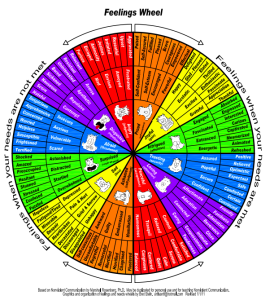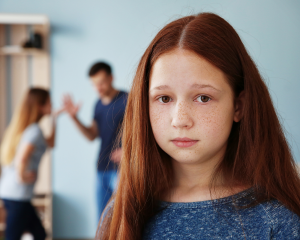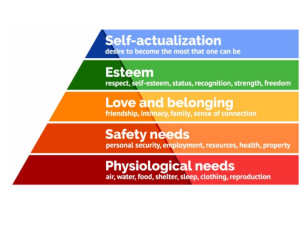Tips to Talk to Your Teen About Depression
Tips to Talk to Your Teen About Depression
Learning how to talk about depression with your teen is not an easy task; as a parent of a teen girl, and therapist working with teens too – I KNOW this can be a challenge! But when we recognize that are teens are struggling and something doesn’t feel right, as parents we need to step in. We want to step in because we want to help! Also, lot of us did not grow up with all this new mental health knowledge, our teens probably have a pretty good vocabulary and awareness on more than we give them credit for. As parents we know our teens best, we can often recognize when they are not themselves. So what do we do and how can we approach our kids when we begin to see them struggle.
———
The Happiness Pill: Teen Coaching to Build Resiliency Against Anxiety & Social Awkwardness CLICK HERE FOR DETAILS <<<
6 Weeks of group coaching to help teen girls navigate big emotions like anxiety and overwhelm, feel confident from the inside out (including with her body image), and handle social anxiety like a BOSS.
The Happiness Pill
———

Photo by Yuris Alhumaydy on Unsplash
If your teen seems to be struggling with some intense feelings or their mood has visibly changed, maybe they have habits that seem different. It could all warrant a conversation. I would recommend approaching your teen when things are calmer in your house, i.e not right after school when chaos could be prevalent. You want to make sure that you are also in a good headspace, take a minute to make sure that you are coming from a place of love and concern. Once you have a calm atmosphere and you are calm yourself, I would try asking them if anything has happened lately. Mention that you have noticed that they are not spending time with their friends as much or doing the activities they love. Coming from a place of love tell them that you are concerned and want to know if there is anything that perhaps that could have occurred at school or an incident with friends. If your teen cannot pinpoint anything directly, it is a good time to open the discussion about mental health. You could ask them if they want to go for a walk or a coffee or play a game. By engaging in an activity, you kind of take the pressure off of your teen, and it can also help relax your teen making them more likely to engage in conversation.
Depression and anxiety are very common, and everyone experiences feelings of sadness and anxiety at some point. Teens often don’t realize that this is normal and can get really worried about it. Telling your teen that this is normal and that it is ok to feel anxiety and depression, and just because they feel sad or anxious, does not mean you are depressed or have anxiety. Discussing these feelings in a safe place and space will help your teen feel more comfortable. Let them know that it is ok and that you are always there to help and to talk. Talking about it

Photo by Eric Ward on Unsplash
can help so much on its own! If your teen struggles with being open with you, that’s ok, try not to take it too personally. It may be a good time to look up a counsellor for your teen, as having someone trusted and confidential can really help. Let them know that seeing a counsellor is really just part of keeping your health in check. At Pyramid Psychology we are here to help, listen and provide tools for your teen when they are experiencing times of distress. Good luck, and please reach out for a free consultation HERE if you would like further support.
Love,
Tara Aldie
Graduate Student in Counselling offering affordable counselling for teen girls (11-18 years old) online, and in person in Airdrie, Alberta
*1:1 services available for teen girls living in Alberta, Canada – $40 per session. Free consultation here.
———
The Happiness Pill: Teen Coaching to Build Resiliency Against Anxiety & Social Awkwardness CLICK HERE FOR DETAILS <<<
6 Weeks of group coaching to help teen girls navigate big emotions like anxiety and overwhelm, feel confident from the inside out (including with her body image), and handle social anxiety like a BOSS.
The Happiness Pill
———
About Tara
 Hello, my name is Tara, and I am a graduate student in counselling, I will be doing my practicum at Pyramid Psychology and I am very excited to practice all the skills I have learned as well as develop new relationships.
Hello, my name is Tara, and I am a graduate student in counselling, I will be doing my practicum at Pyramid Psychology and I am very excited to practice all the skills I have learned as well as develop new relationships.
I have experience working with youth and teens and I also navigate parenting to four of my own kids. I tend to work with a solution focused, client centred and cognitive behavioural approach. I know that being a teen is tough, and sometimes are problems exasperated by social media and technology.
I struggled with fitting in as a teen, and I really felt that I didn’t belong. After years of soul searching and many personal ups and downs, I realized that my uniqueness was a strength. My goal is to help navigate through these difficult times while promoting self-discovery and personal strengths.
I understand that parents can often feel confused and left out of their teen’s life. I look to bridge the gap between these differences through positive communication. Teens need all the support they can get; the world and relationships can often seem crazy and unrelatable. I work to help bring closeness within existing supports and help develop and foster relationships.
With art, music, writing, play and movement we can work together to help promote self-discovery. I look forward to creating a positive and healing journey with you!
Book a free consultation with me here.
Serving teens in Alberta age 11-18, online or in person (Airdrie, Alberta).






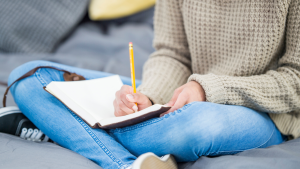














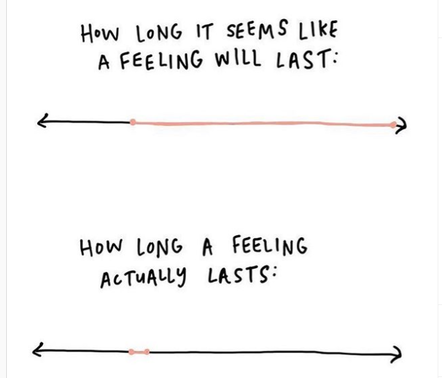


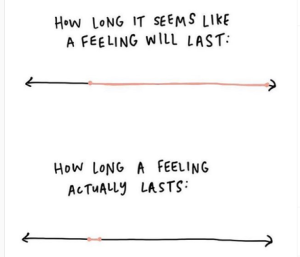


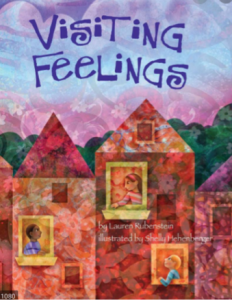



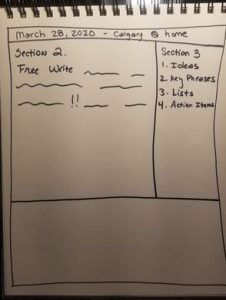
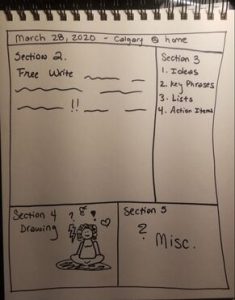





 Jessa is a counsellor that has recently completed her master of counselling degree through Athabasca University.
Jessa is a counsellor that has recently completed her master of counselling degree through Athabasca University.


